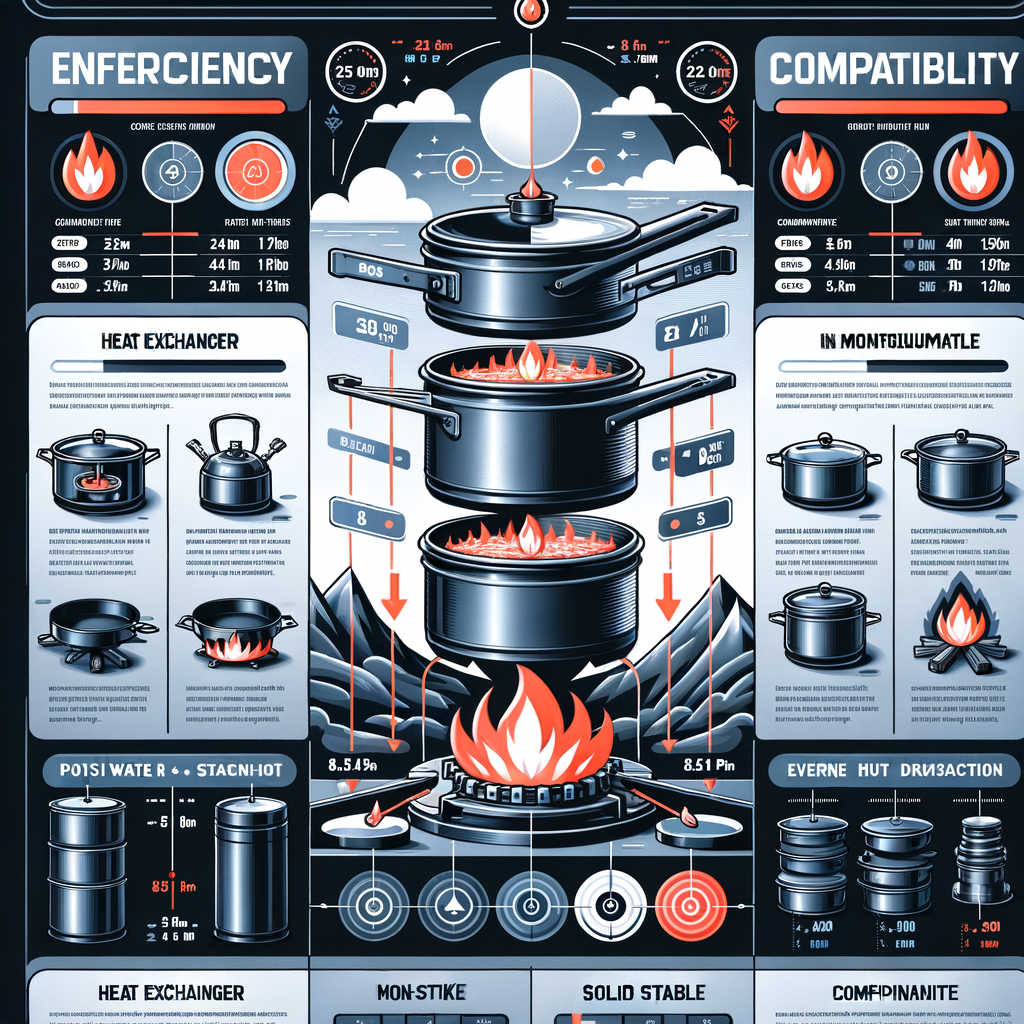How To Turn Your Passion Into A Thriving Online Business
I believe that the journey to a thriving online business begins with a keen understanding of your passion. It’s about digging deep to recognize what excites you the most. Ask yourself, what keeps you up at night with excitement, or what topic could you spend hours discussing without glancing at the clock? Why is passion so important, you may be asking yourself. Well I agreed with you when I started I started to chase the money. Read on to find out exactly how soul destroying that was. Today I write almost solely on natural health and making money online. My two great passions.
My experience With Chasing Money?
Well my first niche was “acne” and I wrote 400 articles of 500 words each. Articles were shorter back in the day, but that was still 20,000 words. Imagine the trauma of writing 20,000 words about pimples. If it had been for my own business, I might have tolerated it. But no, it was for freelance work, and I didn’t see a penny of those pus-filled profits. For the next 25 years, just hearing the word “pimple” made me want to toss my cookies. If I ever meet acne again, I’m sending it a bill for emotional distress!
How Does Your Passion Solve a Problem?
Once you pinpoint your passion, it’s time to assess its potential to succeed in the online marketplace. The digital world is vast, but so is the opportunity to find a corner that resonates with your unique interest. Think about how your passion solves a problem or adds value to people’s lives, and you’ve found where you can shine.
Sustainability is Key.
Sustainability is key. Your passion must be like a cockroach—able to survive the nuclear fallout of the ever-changing online business landscape. It means making sure people still want what you’re selling even after the latest TikTok trend dies and that your enthusiasm doesn’t vanish faster than a New Year’s resolution.

in 17 Years at Wealthy Affiliate I have seen a lot of Entrepreneurs turn their Passion into profit.
The beauty of niche affiliate marketing is that it allows you to focus on a specific segment of the market, providing value to a targeted audience and building a dedicated following that trusts your recommendations.
Pat Flynn
Identifying Your Passions and Skills
- My Experience; – it’s crucial it is to align your business with what you genuinely enjoy and what you’re good at. This coherence isn’t just about job satisfaction; it’s about the natural advantage you gain in a competitive digital marketplace. Let me explain how you can turn your personal interests and expertise into a profitable business idea.
2. Begin with introspection. List down activities that fascinate you or those tasks you excel in. It could be anything from making handcrafted items to expertise in digital marketing. Passion often translates to motivation, and skills translate to the value you’ll offer your clients or customers. If you’re excited about what you’re doing, it’s infectious. Potential customers can sense that enthusiasm, and it can be a powerful driver for business growth.
Passion Driven Entrepreneurship
3. Choose a hobby. I’ve seen many entrepreneurs succeed by merely transforming their hobbies into income streams. For instance, consider a graphic designer who loves creating artwork for tabletop games. By identifying a niche within the game industry, they could specialize in designing cards or promotional materials for game companies. That’s how a personal hobby can evolve into a thriving business.
4. the core principle holds true: Passion-driven entrepreneurship not only taps into your innate strengths but also provides a clearer path to building expertise and establishing a loyal customer base. Before moving forward, ensure you’ve pinned down what excites you and where your competencies lie. With that foundation, you’ll be in a strong position to identify market demand, which I’ll cover in the next step.

Market Research: Assessing Demand and Competition
Before diving headfirst into a niche, it’s crucial to conduct thorough market research. This data-driven approach informs your decisions and can be the difference between a thriving business and a short-lived venture.
Start by utilizing tools like Google Trends, social media analytics, and industry reports to measure interest in your niche. Look for patterns in consumer behavior and note any increasing or decreasing trends.
Pay special attention to market gaps. These are opportunities where customer needs aren’t fully met by existing providers. Identifying a gap often reveals a potential niche that could be profitable.
Identifying Gaps In Other Writers Content
Keyword research: Use tools like Google Keyword Planner, SEMrush, or Ahrefs to identify popular search terms related to your broad niche. Look for keywords with high search volume but low competition, which may indicate a gap in the market.
Analyze competitors: Study popular blogs in your niche and identify areas where they may be lacking in content or expertise. Look for topics they haven’t covered extensively or perspectives they haven’t explored.
Audience research: Engage with your target audience through social media, forums, or surveys to understand their pain points, interests, and needs that aren’t being adequately addressed by existing blogs.

Don’t Overlook What Your Competitor’s Are Doing
While you’re investigating demand, don’t overlook competition. Analyze other businesses operating in your space. What are they offering, and how can you differentiate your services or products?
Learn from both their successes and mistakes. Check out their customer reviews to understand what consumers like and what they don’t. This insight is gold; it’s firsthand feedback on what works in your potential niche.
Remember, it’s not just about finding a niche with low competition. It’s about finding a balance. Too little competition could indicate a weak or non-existent market, while too much could mean the niche is oversaturated.
Be thorough, but don’t get stuck in analysis paralysis. Once you’ve gathered enough information to understand the demand and competition, it’s time to evaluate how profitable your niche could truly be. That’s what I’ll cover next.
Evaluating Profitability: Factors to Consider
Choosing a niche that you’re passionate about is one thing, but making sure it’s also profitable is quite another. It’s essential that you approach this with a strategic mindset to ensure the viability of your business in the long run.
First, take a close look at potential revenue models. Will you be selling products or services directly, or could you consider a subscription-based model? Perhaps affiliate marketing or advertising fits better with your niche. Your choice should align with customer expectations and industry standards.
Next, examine cost structures and pricing strategies. It’s not just about what you’re selling; it’s about how much it costs to create, market, and distribute your product or service. Additionally, your pricing must not only cover costs but also generate profit. Don’t forget to account for overheads like website hosting, marketing tools, and any other operational expenses.
How does your chosen niche stack up when it comes to long-term sustainability? Temporary trends can offer quick returns, but evergreen topics and perennial products or services are often key to steady long-term profitability. Evaluate the durability of the niche so that your business remains relevant over time.
The transition into the next section is natural as profitability is intrinsically linked to visibility online. If the niche you choose has a profitable foundation, you can strengthen it further with an effective SEO strategy, which will be the focus of the following section.
SEO Strategy: Optimizing for Visibility.
I recognize that for any online entrepreneur, the deep-sea of digital marketing acronyms can often feel overwhelming. Yet there’s one acronym you simply can’t afford to ignore: SEO. Standing for Search Engine Optimization, it’s the lifeline of your online visibility. Let’s unpack how this applies to niches, because choosing a profitable niche is just step 1.
When I talk about keyword research, I’m referring to the process of uncovering the queries your potential customers punch into search engines. Choosing a niche that aligns with specific, sought-after keywords helps ensure that the right eyes land on your content. There are several tools like like Google Keyword Planner or SEMrush to pinpoint these golden keyword opportunities, however Wealthy Affiliate has their own keyword tool Jaazy.
But keyword research is just the starting point. You see, there’s a common misconception that SEO is only about including these keywords in your content. That’s not the entire picture. SEO best practices also encompass website speed, mobile-friendliness, and user experience – all critical components that search engines, like Google, consider when ranking your site.
never Forget You Are Writing For People Not Algorithms.
Niche marketing makes money by people following through on your recommendations and making a purchase. No algorithms can do this as they don’t have credit cards, at least not yet! Make your approach be a people first approach to marketing. Search engines are becoming increasingly sophisticated and adept at understanding user intent and prioritizing content that provides the best user experience. By crafting content that genuinely addresses the needs, interests, and pain points of your niche audience, you naturally align with search engine goals. You don’t want to put your readers off because your content is full of keyword stuffing, yes that tactic worked back in the day, but it hasn’t worked now for twenty years.
Here’s the big picture Beyond Choosing a Profitable Niche
The content you create – from blog posts to product descriptions – should serve your audience first and foremost, not just the search engine algorithms. This means valuable, informative, and engaging content that answers your audience’s questions and needs. It’s critical to strike a balance – natural keyword inclusion that improves searchability while maintaining quality. Choosing a profitable niche is the first step, after that you should be researching the problems in your niche
As you transition to your digital marketing efforts, recall that SEO isn’t a one-time task but an ongoing process. It dovetails INTO LEVERAGING digital marketing tools, an essential piece of the puzzle in shaping your niche’s success. I’ll navigate you through that in the next section, ensuring you’re well-equipped to build a robust online presence.
Leveraging Digital Marketing Tools
The digital arena is brimming with opportunities to showcase your niche. Once you’ve nailed down the SEO for your online business, it’s time to turn to digital marketing tools. They’re crucial in broadcasting your brand and drawing in a crowd. Think of them as loudspeakers for your message, but the kind that speaks directly to those who’re most eager to listen.
Social media is your first avenue — it’s powerful and more often than not, free. We’re talking about platforms tailored to fit the content style that complements your niche. For a visually stunning product, Instagram is your go-to. More of a conversational brand? Twitter might be your playground. It’s about finding where your potential customers hang out and engaging with them there.
Before you go overboard and lambast every social media platform, let me give you a word of warning from my personal experience. Every platform is different, they all have different strengths and weaknesses. Choose the one platform that is right for you to start with. Then read its terms and conditions carefully. Yes, I know I can hear you all groaning from here. Who reads the terms and conditions right?
The People Who Read the Terms and Conditions are….
The people who take their business seriously, The one’s who are building a long term sustainable and profitable future. If you want a quick rich scheme as an affiliate marketer you have missed the boat by about twenty years. Read the terms and conditions because you do not want to get banned from a potentially profitable traffic source.
How do I analyze competition in my chosen niche?
Find Your Niche Keywords
First of all Use Jaazy to analyze your Keywords. Enter your niche keywords into Google and analyze the search results. The websites that appear on the first few pages are likely your main competitors.Explore social media: Search for your niche keywords on social media platforms like Facebook, Instagram, and Twitter. Identify the accounts and pages with high engagement and follower counts in your niche.If your niche involves physical or digital products, explore online marketplaces like Amazon, home Depot, Etsy, or Clickbank. Look for top-selling products and the sellers behind them.
influencers and Partners.
Don’t overlook influencers and affiliate partnerships. Tapping into influencers who align with your niche can catapult your brand into the limelight. They already have the ear and trust of your audience. Affiliate programs, on the other hand, allow passionate customers or niche bloggers to earn by promoting your products. It’s a win-win; you get sales and they get commissions.
As you integrate these digital marketing tools, remember it’s a balancing act. Don’t spread yourself too thin across every platform. Pick a few that align with your brand and focus on creating meaningful interactions. Track what works, adjust as you go, and you’ll see your niche business strengthen its presence online.
Summarizing the Key Takeaways For Choosing a Profitable Niche
Recall the key takeaways: Understand your passions, perform thorough market research, assess the profitability, and never underestimate the power of SEO. It’s a blueprint for success in the digital marketplace.
The journey doesn’t end here, though. Keep your finger on the pulse of the industry you’re entering. The only constant in the world of online business is change, and the victors are those agile enough to adapt.
Stay committed to learning and evolving, and your niche could lead you to unforeseen levels of success. Step forward with confidence—you have the tools and knowledge at your disposal. Here is an article I wrote a few years ago but it does not need updating today, Profit from Niches for newbies
In Conclusion, Choosing A Profitable Niche
Choosing a niche business is not difficult but best done before you start content creation. Your future as an online entrepreneur begins now. Go out there, apply what you’ve learned, and start building something outstanding. Remember, great things often have small beginnings, and your niche could very well be your stepping stone to greatness. Wealthy affiliate has all the tools you need to create a sustainable and profitable business.













This is a great article and I’m glad I came upon it. I have tried affiliate marketing and choosing a niche has been the most difficult aspect of it. I was told to go after high ticket items to make more money, but as your article states, you have to have a passion for the niche that you choose.
I do need to use social media more as well. I don’t have a lot of expertise in that area, but your article’s given me the push to check into it more; thanks.
Thank you, Willow; I am so glad you have personal experience of choosing the wrong niche. It is a lesson once learned, never forgotten.
Catherine this is a great article! Very informative and point on about affiliate marketing and the potential it possess for absolutely anyone who wants to make money online. It isn’t hard once you find that niche that inspires you, if it doesn’t interest you it’s very hard to stay on target.
it is soul destroying, writing in a niche that doesn’t interest you, it sucks the very soul out of you
Thanks for the giggle, Catherine – I love the way you write. And I agree wholeheartedly, writing solely for profit instead of passion is not the way to go.
I’ve been passionate about every single niche website I’ve created, but therein lies the rub. I made a slightly different mistake starting out. I’m multi-passionate and easily distracted, so I started too many websites in too many niches. Which meant multiple social media channels too. I now have 4 websites, 3 YouTube Channels and 3 Podcasts. It’s all rather nuts keeping up with it all.
Your advice is golden – if you’re going to choose more than one niche, make sure it’s a complementary niche.
To be fair Lauren, I did exactly the same thing when I started out. I read an eBook by an old timer, Dennis Becker, and he recommended that I stick to one thing until I made $100 a day. Once I stuck to that advice I was away.